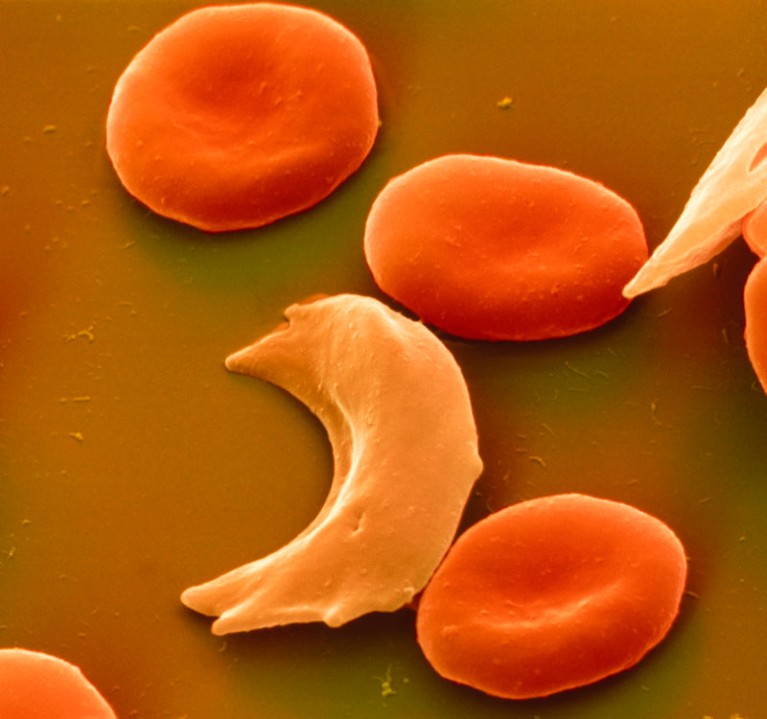Hello Nature readers, would you like to get this Briefing in your inbox free every day? Sign up here

Sickle cell anaemia is a genetic disorder marked by misshapen haemoglobin.Credit: EYE OF SCIENCE/SPL
CRISPR ramps up to fight disease
As the first clinical-trial results trickle in, the prospect of using CRISPR genome editing to treat a host of diseases in people is moving closer to reality. In 2019, the US government’s clinicaltrials.gov database listed more than a dozen active studies that are testing gene editing as a treatment for a range of diseases, from cancer to HIV and blood disorders.
Australia fires kill a billion animals
The unprecedented bush fires in Australia have devastated native wildlife and livestock populations. Ecologist Chris Dickman estimates that at least 480 million animals have been killed directly by the fires, or died from lack of food or shelter, or as a result of predation following the disaster. The estimate is only for the state of New South Wales, which has been most affected by the fires, and does not include insects, bats or frogs — so the total number of animals killed across the country is likely to be much higher. “Over a billion would be a very conservative figure,” Dickman told the Huffington Post.
At least 24 people have died, and more than 1,800 homes have been destroyed, since the bush-fire season started in September.
“No-regret solutions” to save insects
More than 70 scientists from around the world have signed up to a road map for insect conservation that includes cutting pesticide use, reducing light pollution and restoring variety to farmland. They also call for more research and monitoring of insect populations, but emphasize that we shouldn’t delay action. These are “no-regret solutions”, say the scientists: they will benefit society and biodiversity even if their direct effects on insects isn’t known yet.
Reference: Nature Ecology & Evolution correspondence
Meet the ‘method of the year’
Nature Methods has crowned single-cell multimodal omics as its Method of the Year 2019. The technique reveals how a rich and complex inner life differs between cells, allowing researchers to explore questions about the genome, transcriptome, proteome and epigenome with single-cell resolution.
Nature Methods editorial | 4 min read & Nature Methods feature | 14 min read
Features & opinion
How to measure if things are getting better
With China as a case study, researchers have demonstrated a new way to track whether nations are succeeding in ending poverty and hunger, tackling climate change and more. The system uses the reporting framework for the United Nations Sustainable Development Goals to create a score that can be compared across regions and over periods of time. It’s a milestone method for solving an incredibly difficult problem, says a Nature editorial.
Imagine a week without meetings
In November, I told you about genomic-medicine researcher Heidi Rehm’s plan to schedule meeting-free weeks four times a year at the Broad Institute. Now, eight other groups from the the genomics community have joined in, co-ordinating the weeks to avoid key conferences in the field.
A toast to the error detectors
“Scientists are very quick to say that science is self-correcting, but those who do the work behind this correction often get accused of damaging their field, or worse,” argues psychologist Simine Vazire. She calls for 2020 to be the year in which we celebrate those who offer kind and constructive criticism.
Don’t die for chemistry
Academic chemistry does not prioritize safety, despite several high-profile accidents in the past decade that caused significant injuries and fatalities. That’s the damning conclusion of a review article in Nature Chemistry, prompting the journal to explore what steps are needed to turn things around.
Reference: Nature Chemistry review article
